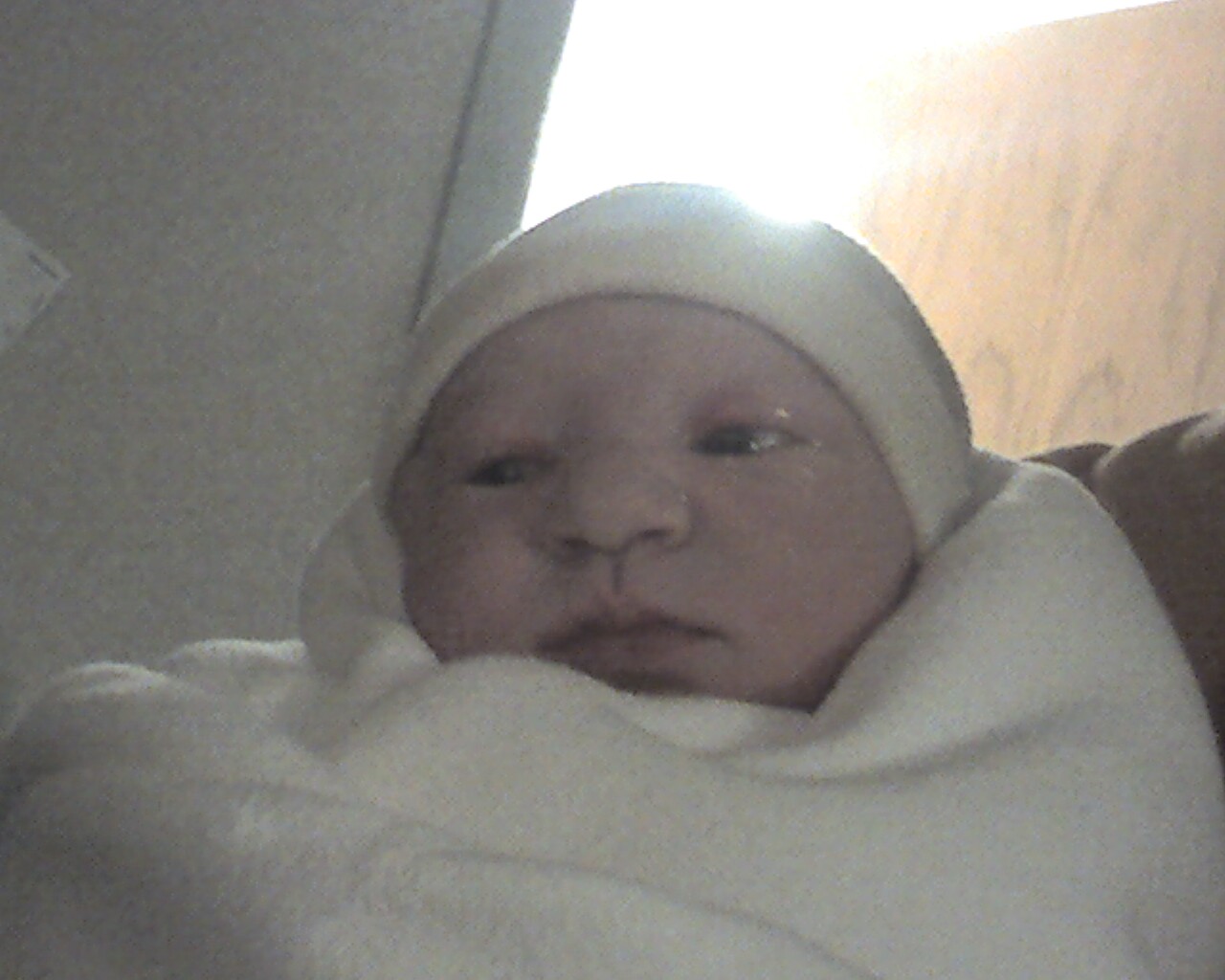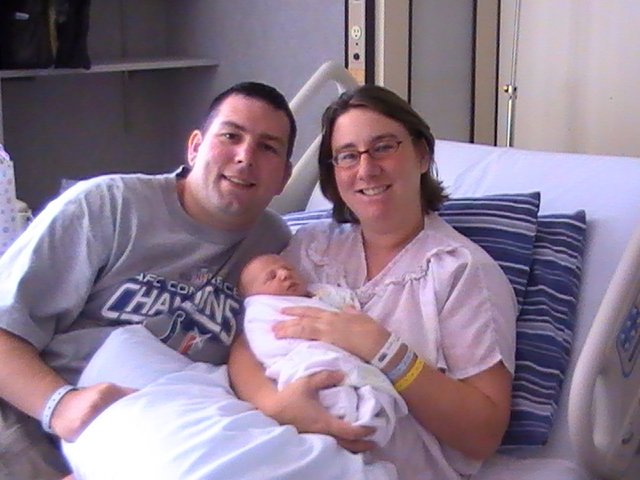Grace, mercy, and peace to you from God, our Father, and from our Lord and Savior, Jesus Christ, amen. The text for the sermon this morning comes from the Gospel, which was read earlier.
A hymn that we sing quite regularly when we have a Baptism is “Father Welcomes.” The refrain fits in quite nicely with our Gospel for today: “Father welcomes all His children/To His fam’ly through His Son/Father giving His salvation,/Life forever has been won.”
A Canaanite woman came to Jesus with a problem. Her daughter was possessed by demons, and she was hurting and confused. How could she bear the sorrow of having her daughter tormented by a demon? She did not know, and she cried to the Lord for help.
This doesn’t sound like anything unusual; many people came to Jesus for help and healing. Why is it different for this Canaanite woman? The Canaanites were the ancient inhabitants of the land, yet they were Israel’s foe of old. Coming to Jesus, the King of the Jews, is not something that the average Canaanite would do. Coming to our Lord and Savior, Jesus Christ, the woman revealed both her needs and her faith. She loved her daughter very much. She needed help, and she believed that Jesus could provide that help. She cried out, “Have mercy on me, O Lord, Son of David….” She cried for help, but at first, our Lord ignored her. He treated her as though she did not even exist. To be ignored by one whose recognition we desire is one of the hardest treatments on earth to bear, and she felt this. From the depth of her being, she may well have asked, “Why is He so silent to me? Is it, because I am a Gentile and He is a Jew? What is the reason?”
We tend to ask the same question when bad things happen in our lives: “Why is God so silent to me? Didn’t He hear me?” God does indeed hear our prayers. “God hears the prayers of all Christians and answers in His own way and at His own time.” The prophet Isaiah tells us this in Isaiah 65:24 – “Before they call I will answer; while they are still speaking I will hear.” He has promised to hear all of our prayers, yet His answer may not be the answer we want or expect. There are three answers which God gives to His people: yes, no, wait. At the moment, the Canaanite woman’s response was “no.” She became so insistent that our Lord’s disciples urged Him, “Send her away, for she is crying out after us.” Did they mean He should heal her daughter and send her away, or did they mean He should “get rid of her?” It’s impossible to tell, but their concern seemed to be more for themselves than for this poor woman. The mother is making so much noise, it’s embarrassing, and through all of this, she’s getting on the disciples’ nerves. Choosing to brush aside His objections, this poor mother knelt down before Him saying, “Lord, help me.”
Now, before this turns into a personal pity party, we need to understand the horrible circumstances in life that this poor Canaanite woman had. First of all, she is a woman. In that time and culture, being a woman often meant being in a lower class and having a lower status. Second, she is a Canaanite woman. With respect to Jesus, she is a Gentile and He is a Jew. That means she is not one of the children of Abraham and not one of God’s chosen people of Israel. She is an outsider with absolutely no genetic right to ask for help. Third, the woman’s daughter is demon-possessed.
When Jesus does say something, He tells her He will only help the people of Israel, not some foreigner like her. Silence, rejection, exclusion, yet the woman doesn’t give up. Now she kneels before Jesus and begs. It is a heartbreaking scene, to say the least. Surely Jesus will do something now – He has to! But no, He tells the woman it’s not right to help her instead of the people of Israel. He even calls her a dog. But the woman presses on, asking for the crumbs that come from the table of a dog’s master. Now Jesus does what we expect Him to do – He heals the child and commends the woman for her faith.
This becomes the example for us as Christians when assailed by personal doubts and devils. We too may reply, “Everything about me is true. I am indeed a great sinner and God truly owes me nothing but punishment and condemnation, now and forever. If anything were left to me – to receive on what I deserve, then I am most certainly lost. But here is Jesus, my Savior and my Redeemer, who died in my place suffering the wrath of God in my stead. There is nowhere else to go.”
This was the thought of the Canaanite woman. She had nowhere else to turn. That same thought must be the thought of us as well. We must confess that we are indeed a sinner. We must confess that we receive nothing but punishment and everlasting damnation. We must confess that it is Jesus Christ and Him alone who is able to save us from our sins and to give to us everlasting life. There is nothing in this world that can give us the comfort, peace and assurance that our Lord and Savior, Jesus Christ gives to us; yet we continue to scour the world over to find that comfort, peace, and assurance.
Through their relationship, Jesus was teaching the Canaanite woman and all of us to be persistent in prayer. We are not to lose heart if we do not get an immediate response to our prayers. Prayer is not a demand note. It is a relationship, a relationship in which we make our requests known to God our Father. We make our requests known to God and we leave it to Him to decide how best to answer our prayers. We think we know what is best for us; we have our own notion of how our prayers should be answered and the answer is always in our favor. However, that is not what Scripture says. The prophet Isaiah writes, “For my thoughts are not your thoughts, neither are your ways my ways, declares the Lord. For as the heavens are higher than the earth, so are my ways higher than your ways and my thoughts than your thoughts.” When we are left to agonize in prayer, we learn our total dependence on God. We are more apt to believe and understand that the change in our lives has come from God in response to our prayers. When the Lord has answered our prayers, let us not question His delay in answering – instead, let us rather be grateful. Let’s remember what God has done in our lives and joyfully share the fact that He had mercy on us.
Remember how I made mention of the hymn, “Father Welcomes” at the beginning of the sermon? Listen again to the refrain: “Father welcomes all His children/To His fam’ly through His Son/Father giving His salvation,/Life forever has been won.” God the Father has indeed welcomed all of His children. He did it for the Canaanite woman through her faith. He has done it through the waters of Holy Baptism; just as He has with young Wesley and just has He has welcomed us, through our Baptisms into Christ and through the life, death, and resurrection of our Lord and Savior, Jesus Christ. God our heavenly Father has heard our prayers and has forgiven us, for the sake of Jesus Christ.
By faith in Jesus Christ, you and I live beneath a heaven that God opened by sending His Son to be born a man. We are equipped to bring our prayers of blessing, confession, and petition to Him in the full confidence that He will both hear and answer us. It is by this act of Jesus that “Father welcomes all His children.” In the name of Jesus, amen. Now the peace of God which passes all understanding, keep your hearts and minds through faith in Christ Jesus until life everlasting, amen.

